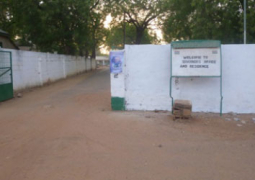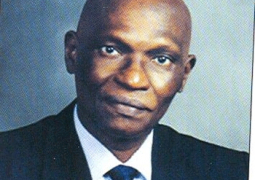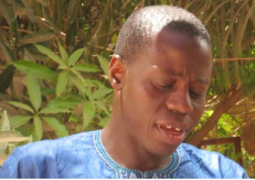The writing on the wall
In the course of a banquet hosted by King Belshazzar “for 1.000 of his nobles,” he ordered that the gold goblets his father, Nebuchadnezzar, had seized from the temple in Jerusalem be brought out so he and his guests could drink wine from them. His instructions were complied with. But as they drank, praising “the gods of gold and silver, of bronze, iron, wood and stone.” (Daniel 5:4) something strange happened.
The king was startled to see “the fingers of a human hand writing on the wall.” As he watched, he became all the more perplexed. He literally panicked. Immediately, he summoned his “enchanters, astrologers and diviners,” to help unravel this mystery for a handsome reward. Not one of these wise men could either read or explain what it meant.
The queen was drawn to the scene by the uproar. On analysing the situation, she recommended to the king that a young Jewish exile living in the palace, named Daniel; “who has the spirit of the holy gods in him … and found to have a keen mind and knowledge and understanding, and also the ability to interpret dreams, explain riddles and solve difficult problems.” (Daniel 5:11) should be summoned. She claimed the king’s father had benefited from his expertise before and had even appointed him as head of all the wise men.
Daniel was called in. Like the other wise men, he was offered the same reward if he could interpret the dream. Daniel declined the offer outright, but was willing to throw light on what had happened.
He painted a picture of king Nebuchadnezzar’s temperament in his preamble in these terms that: “… when his heart became arrogant and hardened with pride, he was deposed from his royal throne and stripped from his glory.” (Daniel 5:20) Daniel affirmed that the king was aware of where Nebuchadnezzar went wrong and he had not learnt from his father’s mistake. Not until his father recognised “that the Most High God is sovereign over the kingdoms of men and sets over them anyone he wishes” was the latter’s kingdom salvaged.
He pointed to king Belshazzar’s grave mistake: “you have set yourself against the Lord of heaven” by daring to use the gold goblets from the temple and defiling them. “You did not honour the God who holds in His hand your life and all your ways.” (verse 23c) For this reason, he concluded, the inscription MENE, MENE, TEKEL, PARSIN meant that his reign had been brought to an end because he had been found wanting. His kingdom would be divided. Daniel was honoured nevertheless, but “That very night Belshazzar, king of the Babylonians, was slain.” (Daniel 5:30)
This familiar phrase ‘the writing on the wall’ has filtered into the English language - borrowed from this biblical expression. The writing on the wall serves as a warning; in this context, to those who believe themselves greater than the sovereign God. He says in His word that He will not share His glory with anyone. (Isaiah 48:11) Anyone who equates himself to or behaves as God, or challenges His sovereignty will be dealt with accordingly.
None therefore should think of him/herself highly in comparison to God or s/he will be brought down. God demands that we humble ourselves before Him as the Creator of humankind. What was true of kings Nebuchadnezzar and Belshazzar is true of all who are in positions of leadership and trust. It is God who appoints leaders – however bad, corrupt and wicked they turn out to be. We may not always know what God’s purpose is, but He is not indifferent to their actions.
God has not changed and never will. (Psalm 102:27; Hebrews 13:8) He is still the same yesterday, today and forever. Besides, God is not mocked. Each will reap what s/he has sown. (Galatians 6:7)
We bring swift destruction on ourselves
“If God did not spare angels when they sinned, but sent them to hell, putting them into gloomy dungeons to be held for judgment;” (2 Peter 2:4) we cannot be an exception. It is portrayed all throughout Scripture that God does not tolerate sin. He does not look at sin in any form either. The wages of sin is death.
On the cross, Jesus exclaimed as He bore the sins of humanity: “My God, my God why have you forsaken me.” At that point in time, God could not look at His Son because He represented sin, our sins. Whilst God can forgive us our sins, its consequences are far-reaching and will certainly fall on our heads.
“There is a way that seems right to a man but in the end it leads to death.” (Proverbs 14:12) Complacency in our sin habits can deceive us into believing that we can go scot-free, or that God is not watching. That is a dangerous frame of mind, peddled by the evil one. Sin is a separator, dangerous for our well-being as children of God.
Persecution
Prior to his conversion, Paul was an ardent persecutor of the early church. After his encounter with the Lord whilst on his way to Damascus, with the objective of putting more of the believers of the Christian faith in prison, he suddenly realised what he was up against. He made this statement: “Christ Jesus came into the world to save sinners. But for that very reason I was shown mercy…” (1Timothy 1:15) All those who oppose the word of God are in great danger. Paul’s experience calls to mind that of Pharaoh whose stubbornness pushed him to resist letting the Children of Israel free from slavery.
Not until Saul, who became known later as Paul, encountered the mighty hand of the Lord did he relent in his ways of persecuting Christians. Pharaoh thought he could resist the God of the Children of Israel because he considered himself equally God. But his resistance had a limit and as God increased the intensity of the plagues he caved in. It was too much heat. Do we dare to resist the will of God for our lives? How long can we hold out for?
The God we serve is omnipotent, (All powerful), omniscient (All-knowing) and omnipresent (is everywhere). Take shelter under His wings.




